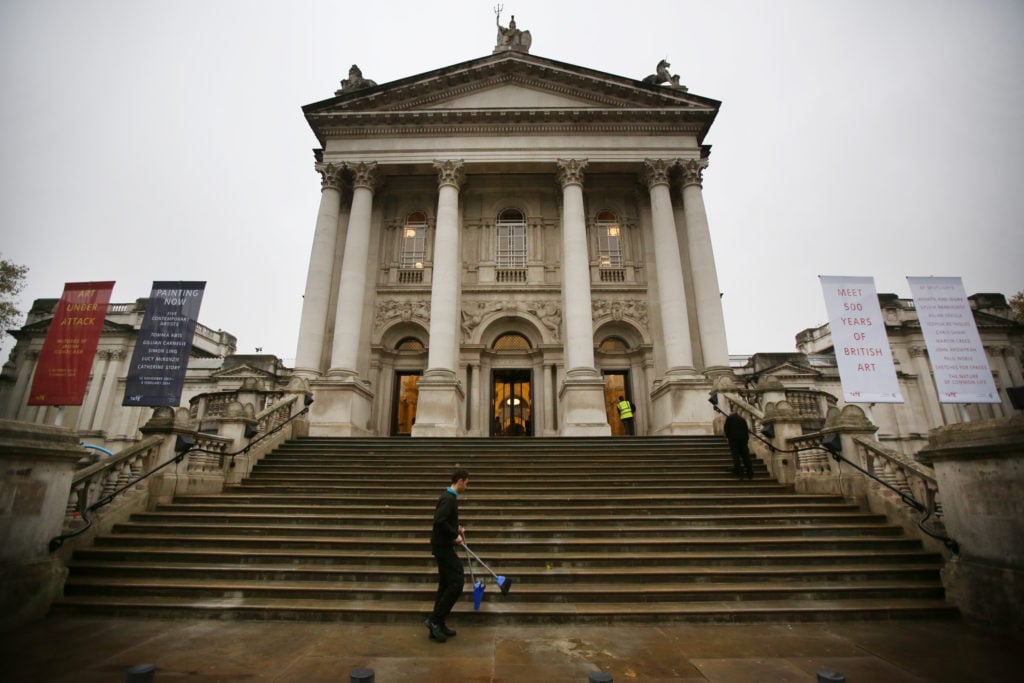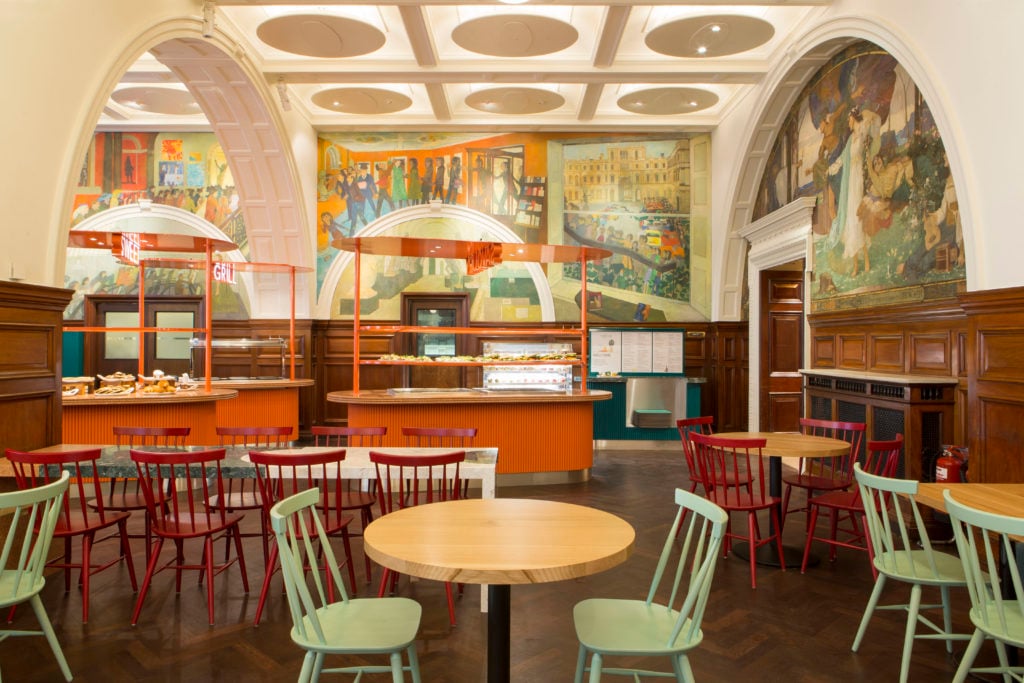Art World
The Tate Will Pay All of Its Commercial Workers Through April—But Employees at Other UK Museums Are Facing an Uncertain Future
Retail, catering, and other employees at museums across the country could be hit hard in the coming months.

Retail, catering, and other employees at museums across the country could be hit hard in the coming months.

Javier Pes

The Tate will pay all of its staff at its four locations across the UK during its enforced closure due to the spread of the coronavirus.
Tate director Maria Balshaw confirmed to Artnet News that employees of Tate’s shops, cafes, and other commercial operations will be paid like their colleagues in curatorial and other departments at Tate Modern, Tate Britain, Tate Liverpool, and Tate St Ives until May 1.
But the situation facing retail, catering, cleaning, and others workers who have been outsourced at other leading UK museums, which are also closed, is unclear. Many have been left in the dark about their job security, and fears are mounting as mass layoffs unfold at companies around the world.
The trade union Prospect, which represents 145,000 workers in a range of professions, including museum employees, is urging institutions to continue paying all their staff, including those who have been outsourced following waves of government funding cuts in recent years that have forced museums to outsource jobs, especially in catering, retail, cleaning, and security.
“Our worry is that agency and temporary workers are not being covered in this way and are likely to face extreme hardship in the very near future,” Prospect said in a statement. “Agency workers and those on zero hours should be covered by the same provisions that employees are at this difficult time.”
Late on Friday, March 20, UK government responded to calls to support employers so they may continue paying staff. Companies and organizations will be able to apply for a grant to cover 80% of the wages up to £2,500 a month ($2,900) of people unable to work due to coronavirus shutdowns. Johnson said that all restaurants must shut tonight.
Some Members of Parliament are pushing for a universal basic income plan to be unrolled during the emergency to help freelance staff and those in the so-called gig economy. Self-employed arts workers, artists, and heritage guides have lost hundreds of pounds in earnings already.

Peyton and Byrne’s RA Cafe. Image courtesy of the Royal Academy of Arts.
But there was some welcome news for anxious staff in the now shuttered restaurants of the National Gallery, the Royal Academy of Arts, and the Wallace Collection in London.
The multinational catering giant Sodexo, which runs the eateries, says it will look to place out-of-work employees in alternative positions on a temporary basis.
“If that is not possible, we will continue to pay the employee normal pay for their contracted hours during this time, subject to any specific provisions in individuals’ contracts,” a Sodexo spokesperson said in a statement.
The restaurants at the British Museum are run by Benugo, which also oversees concessions at the Victoria & Albert Museum, the Museum of London, and Oxford’s Ashmolean Museum.
In a statement on its website about Covid-19, Benugo’s co-founder, Ben Warner, said: “Where we operate inside a museum or performing art space, our hours and ability to open are led by our clients.”
The company did not immediately respond to questions from Artnet News about potential staff layoffs now that museums are closed. Artnet New understands that the V&A is holding talks with Benugo and other subcontractors, which provide security and cleaning staff. Unlike caterers and food-service employees, security guards and cleaners will continue to play key roles while the V&A is closed to the public, albeit in fewer numbers.
The British Museum, meanwhile, referred questions about its operations to Benugo.
The Whitechapel Gallery in East London has recently opened a new restaurant, The Townsend. Iwona Blazwick, the gallery’s director, applauds the staff’s resourcefulness. “They are rising to the challenge and doing takeaways,” she says. Home deliveries are also on offer. She fears for the welfare of London’s “gigantic community” of freelance art workers. “We are thinking of ways to support them, and our artists,” she says.
Earlier this week, Prime Minister Boris Johnson asked people to work from home and avoid public gatherings. While he asked theaters and restaurants to shutter, he did not mention its large museums, leaving directors and trustees to take matters into their own hands. Tate was the first to announced its decision, rapidly followed by the Royal Academy of Arts, and British Museum. The National Gallery was the last to shutter it doors yesterday evening, March 19.
Blazwick describes how heartbreaking it felt to shut doors of the gallery, a sentiment shared by other directors and their staff. “The Whitechapel was the only gallery to stay open during the Second World War, apart from the National Gallery, which had a single painting on view,” she says.